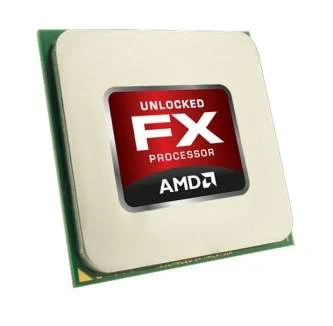I was looking at the benchmarks of AMD’s new FX chip – which generally place performance between Intel’s I5 and I7 – when something immediately jumped out at me.
The processor’s benchmarks improved dramatically when running Windows 8, compared to its performance on Windows on the aging Windows 7. Now I was expecting a lot of things with Windows 8, say like faster boot times, the new Metro interface, and a new suite of applications, but I certainly wasn’t expected a massive increase in performance.

After all, Windows 7 is the maintenance release of Windows Vista, which typically means it is the optimized product – and the next version should be a little more than flat.
But the AMD FX illustrates this puppy (which is still in Alpha) boasts beauty which is more than skin deep. It also proves iTunes is in need of a serious rewrite. Let’s explore this.
Windows 8 Multi-Threaded Wonder
I actually wasn’t aware Windows 8 featured a new thread manager that was rewritten to address the increase in 4 and 8 core processors that are coming into the market. Indeed, the benchmarks seem to indicate that this capability is linear; meaning, the more cores you have the faster the chip will perform on a variety of applications.
This speaks to both the FX strength (multiple cores) and weakness (poor single threaded performance) against the i7 and i5 parts from Intel, as Windows 8 shifts tasks to the idle cores far more aggressively than Windows 7. And, unlike most benchmarks which load applications serially, we actually run a lot of applications in parallel.
The higher core count is also better for power use, as current-gen chips like the FX power down unused cores, allowing the system to operate on a fraction of juice while still not hibernating or sleeping.This enables systems to update email, receive messages, or remain available for remote access without putting a big grin on the face of you power utility because of the extra money you are paying them.
AMD Windows 8 Lead
The impressive benchmarks also showcase some very tight integration and collaborative work going on between Microsoft and AMD, something which could help favor the latter company’s processors next year once Windows 8 ships.

Granted, both vendors will have even newer parts out then, but FX suggests AMD might pull into the lead next year at least with regard to desktop systems.There is always an issue catching a larger and more powerful vendor from behind, and it appears AMD’s strategy is to focus on Windows 8 early and perhaps offer the better part while Intel continues to focus on Windows 7 which is where the market clearly is today.
This approach would allow AMD to increasingly focus on forward looking buyers, who typically purchase systems more often, which could pay dividends next year or when interest in Windows 8 goes up. This would certainly be a more thoughtful strategy than just following Intel into a space dominated by Santa Clara.
Laptops: ARM Advantage?
This does bring up an interesting issue with regards to laptop computers which stalled at two cores, while also raising an interesting question mark in terms of ARM processors.You see, ARM Windows 8 devices are supposed to hit with 4 cores, an approach which might favor RISC-based architecture on laptops for folks who didn’t need to run legacy applications – unless, of course, Intel and/or AMD also run to market with 4 core or better parts at the same time.
What makes this issue even more interesting is that I haven’t seen these in either vendor’s roadmap yet, which likely explains the smiles I’ve seen on the faces of Qualcomm and NVIDIA executive’s faces of late.It would definitely be one hell of a surprise if ARM, rather than x86, was actually favored on laptops when Windows 8 ships.
iTunes Sucks
One other thing that I noticed while perusing the benchmarks was Apple’s iTunes is still massively single threaded.OK, I didn’t need to say “massively,” but the word does seem to make this comment more dramatic. As you probably know, here in Silicon Valley we are into drama this year.
But yes, it appears Apple is still writing for PCs as if it were the 1990s – at least with regard to iTunes – which is why the app likely appears to be working so slowly on new PCs from any vendor. So I think it is high-time for for Apple, which has been putting multi-core processors in their own PCs for years, to get off the fence and move this very popular application into the 21st century.
Wrapping Up:
Windows 8, which really will be a next year event, is looking more and more interesting. The current situation is reminiscent of the Windows 95 launch, when journalists and analysts discovered a number of cool goodies as the OS inched slowly to market.
Of course, there is also some interesting drama unfolding between AMD, Intel, and ARM which could make for a very interesting 2012.Hang on to your seats folks because the FX performance on Windows 8 suggests we may be in for one hell of a ride.






